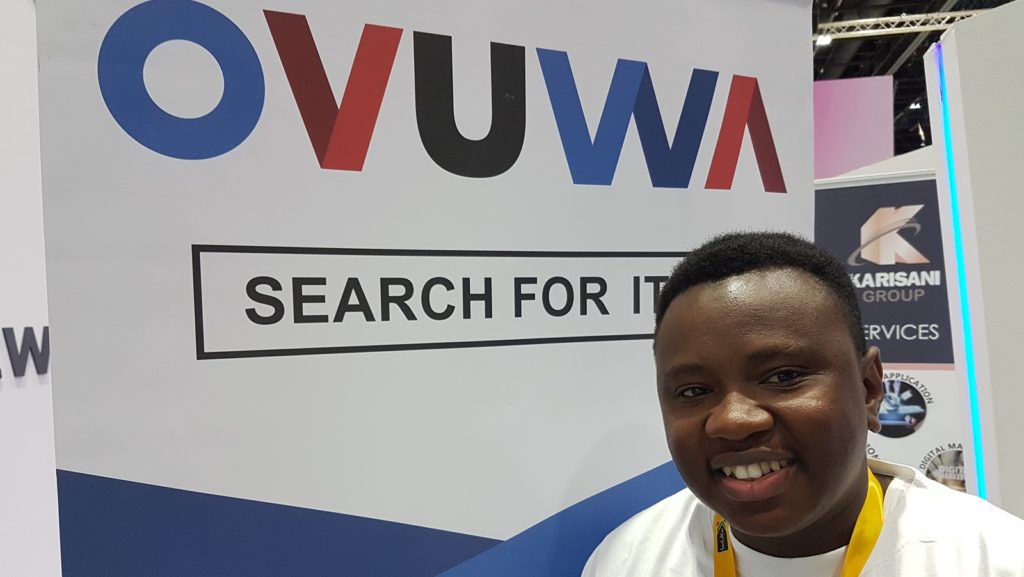We all have them. Those apps we open without thinking. Not because we need anything in particular, but because they feel… safe, in some…
African startups hunt for investment at Gitex Future Stars [Sponsored]

Rendani Nevhulaudzi is looking to take on Google Chrome with Ovuwa, Africa’s newest search engine. All he needs is a cool $1-million, he says. His is one of about 40 African tech startups seeking investment at Gitex Future Stars expo in Dubai.
The tech expo and conference kicked off yesterday at the city’s Dubai World Trade Centre and runs until Wednesday (17 October) alongside Gitex Technology Week. Thousands of visitors — many of whom are likely to include investors — are expected to attend.
In all about 500 startups are listed as exhibitors on Gitex Future Stars’ website — the bulk of these are from the Gulf region, with African startups making up about 40 of these firms (from Egypt, South Africa and Nigeria).
Nevhulaudzi estimates that since last year he and his business partner Shingi Mushipe, both of whom run Pretoria based digital marketing firm Joren Communications, have already ploughed about R300 000 to R400 000 ($20 000 to $27 000) in developing the search engine.
Rendani Nevhulaudzi has so far invested over $300k in developing the Ovuwa search engine and is looking for $1m in investment at the Gitex Future Stars expo in Dubai this week
Nevhulaudzi argues that his search engine will offer users an easier way to find African businesses among the millions of web listings that crowd search market leader Google’s search engine. In contrast, he says his search engine allows users to isolate searches to specific African countries.
Just like Google however, the startup hopes to use paid search to monetise the offering and the startup has already set up a back-end advertising platform with a payment gateway set to be integrated soon.
But while businesses themselves might see the advantage of being indexed by the search engine (about 40 million pages have so far been indexed by the search engine), Nevhulaudzi admits that it has been a battle so far to get users to adopt the search engine. “That’s something we are having a problem with,” he told Ventureburn yesterday at the startup’s stand at the expo.
And despite relying on affordable servers in South Africa and Germany, he admits that the search engine also has latency issues, which affect how long it takes for users to conduct a search.
He’s hoping to land $1-million in investment, and argues that this could help fund better servers and bright developers with PhDs might help in making his offering more attractive.
South Africa’s Small Enterprise Development Agency (Seda) covered the expo costs for Joren Communications and 11 SA startups present at the event.
According to a statement by Seda the 11 others are Astel Systems, Beedale, Belsias Communications, Gometro, Alvarita, Karisani, KT Opportunities, Lula Technologies, Madlokovu Business, Rudzambilu Holdings and Softcoza Developers CC
The startups are being assisted by Seda through the SoftStart BTI in Gauteng, SmartXchange Durban and Port Shepstone in KwaZulu-Natal, Seda Nelson Mandela Bay ICT Incubator in Port Elizabeth and Singatha ICT Incubator College in KwaZulu-Natal.
Also seeking $1m
Another startup looking for $1-million in investment is Egyptian mobility startup Tareeqi. The startup’s app helps users to better plan their journeys by linking them with transport minibuses in the informal sector.
The startup is targeting minibuses that transport university students and has so far signed agreements with three Egyptian universities to offer students the app.
At present the universities are trialling the offering. If after three months they want to continue, they will pay the startup for the rights to have their students use the app.
While the startup only launched last month, founders Al-Farouk Ahmed, Mohamed Monier and Emad Hamdy already want to expand to the Gulf region and are looking for $1-million in investment from an investor to introduce the offering to schools and universities in the United Arab Emirates and Saudi Arabia.
So far most of the initial $60 000 in seed funding the startup has raised since the three came together in April, has come from Hamdy himself.
Drone startup on the money
Another startup looking to land more funding by attending the expo, is Nigerian aerial logistics company Arone.
The startup landed investment of $100 000 in March from three angel investors (the investment was announced in the same month by TechEconomy.ng in this article).
The startup uses special drones, that it designs itself, to transport medicines and blood supplies to remote areas in Nigeria. The drones have a payload of 5kg and a range of 100km. A bigger version to transport 10kg is also planned.
The startup is still in the beginning stages. Arone CEO Emmanuel Ezenwere, who founded the startup with Emmanuel Ikpe in March, told Venturburn that the company has so far carried out 800 test flights and generated $4000 in revenue from deliveries.
The startup has applied to get licensed by Nigeria’s civil aviation association. Ezenwere said if the startup is able to get licensed approval from the authority, it will be able to expand its services across the country.
Arone’s expo costs and those of the other Nigerian startups, were underwritten by Nigeria’s National Information Technology Development Agency (Nitda).
Ezenwere declined to name the three angel investor who had invested in his startup.
With so many startups hoping for investment, investors are going to have no shortage of interest. The question is, will any African startups get lucky?
Stephen Timm is in Dubai as a guest of Gitex Future Stars. The article was sponsored by Gitex Future Stars.
*Correction (15 October 2018): We accidentally referred to Google’s search engine as Google Chrome, when it is simply known as “Google”. This has been corrected. We regret the error.
Featured image: Ovuwa founder Rendani Nevhulaudzi (Stephen Timm)

